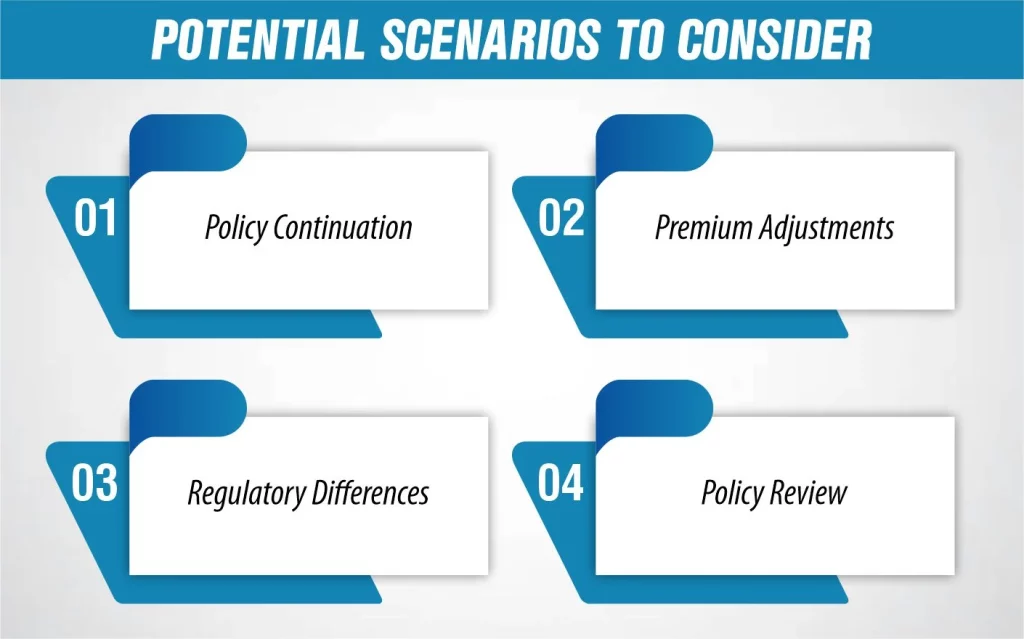Last Updated on: March 4, 2024
Reviewed by Kyle Wilson

Are you prepared for life’s uncertainties? State regulated life insurance plays a pivotal role in providing individuals and families with essential financial protection and peace of mind. Governed by state insurance departments, these policies adhere to strict regulations to ensure transparency, fairness, and consumer protection. With guaranteed benefits and accessible coverage options, state regulated life insurance offers a reliable means of safeguarding loved ones and securing a stable financial future.
Let’s delve into state-regulated life insurance with us and unlock the key to protecting your loved ones and assets. Take the first step towards a brighter tomorrow by exploring state-regulated life insurance options with us today.”
Customized Options Await
State-regulated life insurance refers to policies governed and regulated by state insurance departments. These policies are designed to protect individuals and their beneficiaries financially during the policyholder’s death. State regulations ensure that insurance companies comply with specific guidelines and standards regarding policy terms, premiums, benefits, and consumer protection. State-regulated life insurance offers various types of coverage, including term life insurance, whole life insurance, and universal life insurance, allowing individuals to choose a policy that best suits their needs and financial goals.
Key features of state-regulated life insurance include:
Regulatory Oversight: State-regulated life insurance policies are overseen by state insurance departments, ensuring compliance with regulations and consumer protection laws.
Policy Options: These policies offer various coverage options, including term life insurance, whole life insurance, and universal life insurance, allowing individuals to choose the coverage that best fits their needs.
Premiums and Benefits: State-regulated life insurance policies specify premiums and benefits based on factors such as age, health, and coverage amount. Premiums are typically paid regularly, and beneficiaries receive benefits upon the insured’s death.
Guaranteed Benefits: Most state-regulated life insurance policies provide guaranteed death benefits, ensuring that beneficiaries receive the specified amount upon the insured’s death, as long as premiums are paid.
Cash Value Accumulation: Whole life and universal life insurance policies often include a cash value component accumulating over time. Policyholders can access this cash value through policy loans or withdrawals, providing flexibility and potential financial benefits.
Tax Advantages: State-regulated life insurance policies may offer tax advantages, such as tax-deferred cash value growth and tax-free death benefits for beneficiaries.
Conversion Options: Term life insurance policies typically offer conversion options, allowing policyholders to convert their term policy to a permanent one without additional medical underwriting.
Riders and Add-Ons: Policyholders can enhance their coverage with optional riders and add-ons, such as accelerated death benefits, waiver of premium, and accidental death benefits, providing additional protection and flexibility.
These key features make state-regulated life insurance policies a valuable tool for individuals and families seeking financial security and peace of mind.
Simply put, the term ‘state regulated’ commonly used in these mailers is a half-truth and a play on words. Here’s how we can explain it: All insurance is governed at the state level. All insurance companies require prior approval from your state’s insurance department to legally sell an insurance product in the concerned state. Details related to the rates, application, and other financial information must be presented to the government during approval.
The insurance department will approve the product if and when it meets the prescribed requirements. This is the origin of the term ‘state regulated’ that you often find in these mailers. While technically not a lie, insurance companies twist this fact to mislead people into thinking that some government entity manages the offered program. Rest assured that nobody at any level of the government knows about this “offer.”

Moving to a different state can impact your state-regulated life insurance policy. Still, the extent of the impact depends on various factors, including the specific terms of your policy and the regulations of the new state. Here are a few potential scenarios to consider:
Ultimately, the impact of moving to a different state on your state-regulated life insurance policy will vary based on your specific circumstances and the new state’s regulations. It’s essential to communicate with your insurance provider and stay informed to make any necessary adjustments and ensure continuous coverage and protection for you and your beneficiaries.
You will likely find specific references to your state in several of these mailers. They may include catchy subject lines, such as:
Such deceptive marketing strategies are often characterized by changing the state’s name for each bulk mailing campaign. This further enhances the disguise and improves the possibility of developing trust among people that state authorities regulate these programs.
Truth be told, it doesn’t even matter where you live. Remember that none of these advertisements that include the name of your state are affiliated with or endorsed by your state government. These “benefits” are not limited to the state they are mailing. Most life insurance policies are available in almost all states, with certain exceptions. Mentioning the state’s name is another deceptive mechanism providers use to make people believe a particular state government explicitly offers it. That’s not the case.
State-regulated life insurance policies are subject to strict oversight by state insurance departments, ensuring that insurers comply with regulations and consumer protection laws and providing peace of mind to policyholders.
State-regulated insurance programs often require insurers to be transparent about policy terms, premiums, and benefits, helping policyholders make informed decisions about their coverage.
State regulations often mandate specific minimum standards for life insurance policies, ensuring that policyholders receive basic coverage and protection regardless of the insurer they choose.
State-regulated life insurance policies typically offer guaranteed benefits, ensuring that beneficiaries receive the specified amount upon the insured’s death, as long as premiums are paid, providing financial security to loved ones.
State-regulated programs may offer options for individuals who may have difficulty obtaining coverage through private insurers due to health conditions or other factors, ensuring that more people have access to essential life insurance protection.
In conclusion, state regulated life insurance is a crucial tool for individuals and families seeking financial security and peace of mind. Governed by state insurance departments, these policies offer a range of coverage options, including term life insurance, whole life insurance, and universal life insurance, tailored to meet diverse needs.
With regulatory oversight ensuring compliance and consumer protection, state-regulated life insurance provides guaranteed benefits, cash value accumulation, tax advantages, and flexibility through riders and add-ons. Moving to a different state may impact policy terms or premiums, so thorough review and communication with insurance providers can help navigate any changes and ensure continuous coverage. Overall, state-regulated life insurance remains reliable for safeguarding loved ones and securing a stable financial future.
The truth is that all life insurance companies are state-regulated insurance companies. You need to get a license from your state’s insurance department to sell life insurance policies.
No, life insurance is not insured by the government. It is provided by private insurance companies and regulated by state insurance departments.
State-regulated life insurance programs may help cover final expenses, such as funeral costs, but the government does not directly insure them.
Here is our expert author, Kyle, your go-to source for simplified insights into the world of life insurance. With years of industry experience, Kyle delivers concise and approachable content, ensuring you navigate the complexities with confidence.

Burial Senior Insurance provides information and services related to burial insurance for senior citizens, including policy options and end-of-life support services.
Copyright © Burial Senior Insurance 2024. All Right Reserved.

Get Free Life Insurance Quotes